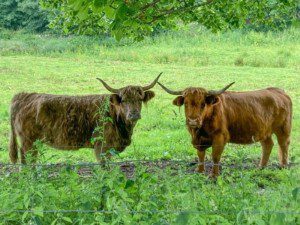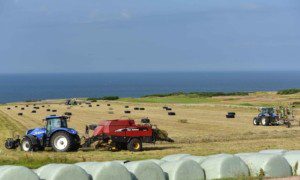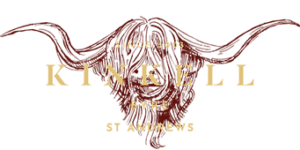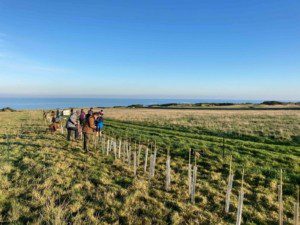9th November 2021
The twin crises of biodiversity loss & climate change
At Kinkell, we are genuinely worried about the impact humanity is having on the natural environment. Around the world, one million animals and plants face extinction. After centuries of intensive farming, construction and industrial expansion, the UK is one of the most nature-depleted countries in Europe. Forests are in retreat, wilderness has almost disappeared, more than 40m birds have vanished since the 1970s and 15% of all wildlife in the UK is now threatened with extinction. This loss of biodiversity is another ecological crisis, which is less well publicised than climate change, but could be equally as dangerous for humanity.
What can we do to help repair the natural environment?
By rewilding Kinkell, we believe that we can help tackle the twin environmental crises of biodiversity loss and climate change.
We are blessed at Kinkell with a stunning natural environment and expansive views overlooking St Andrews and the Bay. However, like much of Fife, wildlife has been pushed back by the spread of intensive farming. Historically, Kinkell was a small arable and livestock farm. Although we branched out into the weddings and events business back in 2003, we have retained around 100 acres of land, including 70 acres of grass fields and 30 acres of cliffs, which are designated as a Site of Special Scientific Interest.
By rewilding the land at Kinkell, turning it back over to nature and allowing natural processes to take hold again, we can help reverse the loss of biodiversity, encouraging the return of native plants, insects, bees, birds and larger animals. At the same time, an increase in plantlife will also sequester carbon from the atmosphere.
To press forward with this plan as quickly as possible, we are giving nature a wee bit of a helping hand.
Firstly, we have started a new policy of conservation grazing, using native cows and other large herbivores to graze and manage the land in the way that nature intended. As part of this plan we have, for now, reduced our head of cattle from 12 Aberdeen Angus to 2 Highlanders and we plan to add Highland Ponies and maybe pigs in the future to diversify the styles of grazing.

Our new resident Highland Coos at Kinkell
Secondly, we have mowed and bailed the existing grasslands to reduce the nutrient load in the soil and plan to sow yellow rattle seeds to further reduce this load. This will help a greater diversity of plants to compete with the grass that dominates the land as a result of decades of heavy-fertilisation.

Cutting and baling grass to reduce nutrients in the soil
Thirdly, last winter we started planting native hedgerows and trees on a small scale. This winter we will be planting about 11 acres of native woodland, hedgerows, orchards and wildflowers which will sequester more than 1500 tonnes of carbon over the next 100 years, equivalent to the annual emissions of 750 petrol cars. In coming months we will also create wetland areas, ponds and scrapes, again to attract a greater diversity of wildlife to the area.
Native hedgerow planting at Kinkell
Fourthly, we have joined the Northwoods Rewilding Network, which is part of Scotland the Big Picture (SBP). If you would like to learn more about rewilding, their website is a great place to start. Through SBP we are offering Weddings for the Wild and we hope we can make our weddings more sustainable – you can read more on our blog, how to have an eco-wedding.
Although we are just one small project, we hope that by demonstrating the impact and abundance that can result from rewilding, we will persuade other landowners in the area to turn over some of their land to rewilding. In time, this will hopefully help to rebuild a connected network of rewilded land across Scotland.
As Scotland the Big Picture puts it…
Imagine a country where wild forests teem with life…
where rivers brimming with salmon and trout flow freely…
where wetlands are shaped by beavers and echo to the calls of cranes…
where healthy peatlands regulate carbon and purify water…
where oceans support an abundance of life…
where communities are flourishing in a vibrant nature-based economy.
Now imagine that country is Scotland.

